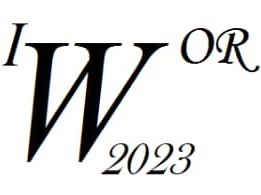Ponente
Descripción
The paper proposes a new method of intrinsic non-parametric Riemannian regression problems using Isometric Riemannian Manifolds (IRMs). IRMs are Riemannian manifolds that share similar geometrical characteristics through isometry. We introduce a method for computing Intrinsic Local Polynomial Regression (ILPR) on IRMs, which enables the global mapping of data from one Riemannian manifold to another while preserving the underlying geometry. The paper also generalizes ILPR to handle multivariate covariates on any Riemannian manifold. The exact analytical expression of the ILPR estimator on manifolds equipped with a Euclidean Pullback Metric (EPM) is provided. The paper focuses on a group of Riemannian metrics on the Symmetric Positive Definite (SPD) manifold, a mathematical structure that arises in machine learning and neuroscience applications. It is shown that several metrics on the SPD manifold are EPMs. A closed analytical expression for the multivariate ILPR estimator on the SPD manifold is derived based on these EPMs (ILPR-EPMs)$\widehat{\beta} = F_S(I_n |\otimes|(WX^T(XWX^T)^-)$, $|\otimes|$ is the Tracy-Singh product. The performance of the ILPR under two specific EPMs, Log-Cholesky and Log-Euclidean, is evaluated on simulated data on the SPD manifold and compared with extrinsic LPR using the Affine-Invariant. The results show that the ILPR using Log-Cholesky metric provides a better trade-off between error and time than other metrics. Finally, Log-Cholesky metric on the SPD manifold implements an efficient and intrinsic version of Riem t-SNE. This technique allows visualizing of high-dimensional SPD data. The code for implementing ILPR-EPMs and other relevant calculations is available on the GitHub page.

